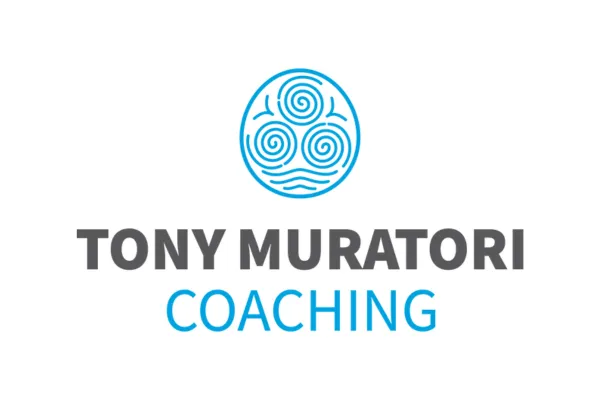
Soy: Myths and Facts
Myths & Facts About Soy
If you follow what the government and food industry tells you, you probably still believe that soy has some health benefits and that it's a good idea to consume at least some. After all, what could be bad about the innocent soy milk or tasteless tofu?
There is so much wrong about this. All that you think you know about soy is the result of careful marketing over years and years that worked so well that everybody is now convinced that it's a super-food that could feed the world and save the environment.
Of course, the main reasons why you should avoid soy are the same reasons why you should stay away from grains. Lectins will mess with your leptin sensitivity (hunger and energy expenditure signals), making your brain think it's hungry even when your body has more than enough calories. Leptin resistance could lead to insulin resistance, which then could lead to a host of problems known as metabolic syndrome.
The levels of phytates in soy are also very high. Phytates bind to minerals like zinc, calcium, iron and magnesium and make them unavailable for you.
Asians and their consumption of soy:
We are led to believe that Asians consume large quantities of soy regularly right? Well that's incorrect! This is what the industry wants us to believe because it's a common fact that Asians generally live longer and healthier than most western civilisations. The food industry led us to believe that the majority of the Asian population consumed soy products on a regular basis showing that this was healthy for us.
But if we look closely at the majority of Asian families, it turns out that they don't eat that much soy. Asians traditionally eat small amounts of soy and most of it isn't a fermented form like nato, miso or Tempeh. When beans and grains are properly fermented they usually lose a good percentage of their lectin and phytate content.
When not consuming a fermented form of soy, they usually have it with fish broth in soups, which is very high in minerals and which counteracts the effects of soy.
Traditional Asian culture which is still seen today seems to instinctively know how to prepare certain foods like soaking, sprouting or fermenting foods to maintain the foods nutritional profile while minimising the negative effects of soy.
Lets debunk some of the common myth about soy:
Soy was first used as a food during the late Chou dynasty (1134-246 BC), only after the Chinese learned to ferment soy beans to make foods like tempeh, natto and tamari.
Myth: Asians consume large amounts of soy foods.
Fact: Average consumption of soy foods in Japan and China is 10 grams (about 2 teaspoons) per day. Asians consume soy foods in small amounts as a condiment, and not as a replacement for animal foods.
Myth: Modern soy foods confer the same health benefits as traditionally fermented soy foods.
Fact: Most modern soy foods are not fermented to neutralize toxins in soybeans, and are processed in a way that denatures proteins and increases levels of carcinogens.
Myth: Soy foods provide complete protein.
Fact: Like all legumes, soy beans are deficient in sulfur-containing amino acids methionine and cystine. In addition, modern processing denatures fragile lysine.
Myth: Fermented soy foods can provide vitamin B12 in vegetarian diets.
Fact: The compound that resembles vitamin B12 in soy cannot be used by the human body; in fact, soy foods cause the body to require more B12
Myth: Soy formula is safe for infants.
Fact: Soy foods contain trypsin inhibitors that inhibit protein digestion and affect pancreatic function. In test animals, diets high in trypsin inhibitors led to stunted growth and pancreatic disorders. Soy foods increase the body’s requirement for vitamin D, needed for strong bones and normal growth. Phytic acid in soy foods results in reduced bioavailability of iron and zinc which are required for the health and development of the brain and nervous system. Soy also lacks cholesterol, likewise essential for the development of the brain and nervous system. Megadoses of phytoestrogens in soy formula have been implicated in the current trend toward increasingly premature sexual development in girls and delayed or retarded sexual development in boys.

Myth: Soy foods can prevent osteoporosis.
Fact: Soy foods can cause deficiencies in calcium and vitamin D, both needed for healthy bones. Calcium from bone broths and vitamin D from seafood, lard and organ meats prevent osteoporosis in Asian countries—not soy foods.
Myth: Modern soy foods protect against many types of cancer.
Fact: A British government report concluded that there is little evidence that soy foods protect against breast cancer or any other forms of cancer. In fact, soy foods may result in an increased risk of cancer.
Myth: Soy foods protect against heart disease.
Fact: In some people, consumption of soy foods will lower cholesterol, but there is no evidence that lowering cholesterol improves one’s risk of having heart disease.
Myth: Soy estrogens (isoflavones) are good for you.
Fact: Soy isoflavones are phyto-endocrine disrupters. At dietary levels, they can prevent ovulation and stimulate the growth of cancer cells. Eating as little as 30 grams (about 4 tablespoons) of soy per day can result in hypothyroidism with symptoms of lethargy, constipation, weight gain and fatigue.
Myth: Soy foods are safe and beneficial for women to use in their postmenopausal years.
Fact: Soy foods can stimulate the growth of estrogen-dependent tumours and cause thyroid problems. Low thyroid function is associated with difficulties in menopause.
Myth: Phytoestrogens in soy foods can enhance mental ability.
Fact: A recent study found that women with the highest levels of estrogen in their blood had the lowest levels of cognitive function; In Japanese Americans tofu consumption in mid-life is associated with the occurrence of Alzheimer’s disease in later life.
Myth: Soy isoflavones and soy protein isolate have GRAS (Generally Recognized as Safe) status.
Fact: Archer Daniels Midland (ADM) withdrew its application to the FDA for GRAS status for soy isoflavones following an outpouring of protest from the scientific community. The FDA never approved GRAS status for soy protein isolate because of concern regarding the presence of toxins and carcinogens in processed soy.
Myth: Soy foods are good for your sex life.
Fact: Numerous animal studies show that soy foods cause infertility in animals. Soy consumption enhances hair growth in middle-aged men, indicating lowered testosterone levels. Japanese housewives feed tofu to their husbands frequently when they want to reduce his virility.
Myth: Soy beans are good for the environment.
Fact: Most soy beans grown in the US are genetically engineered to allow farmers to use large amounts of herbicides.
Myth: Soy beans are good for developing nations.
Fact: In third world countries, soybeans replace traditional crops and transfer the value-added of processing from the local population to multinational corporations.
I hope this article gave you enough compelling reasons to stay away from this inferior source of food and that you'll choose foods that have a superior nutritional profile such as wild caught fish, meats from regenerative and organic farms and eat a wide variety of vegetables and fruits instead, which are a far superior source of nutrition.
Sources:
https://www.montana.edu/hhd/graduate/dietetics/blog_posts/Soy_hormonal_health.html
https://news.vumc.org/2018/12/13/study-links-soy-formula-feeding-and-menstrual-pain/
https://pubmed.ncbi.nlm.nih.gov/28017703/
https://www.montana.edu/hhd/graduate/dietetics/blog_posts/Soy_hormonal_health.html


